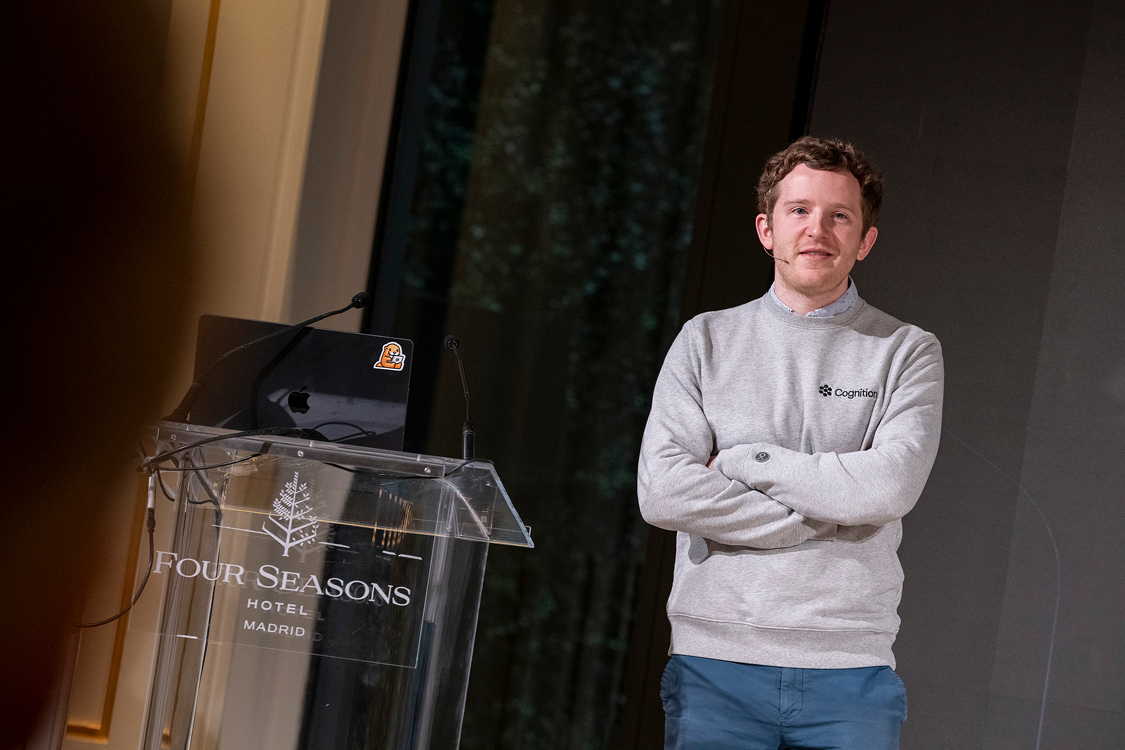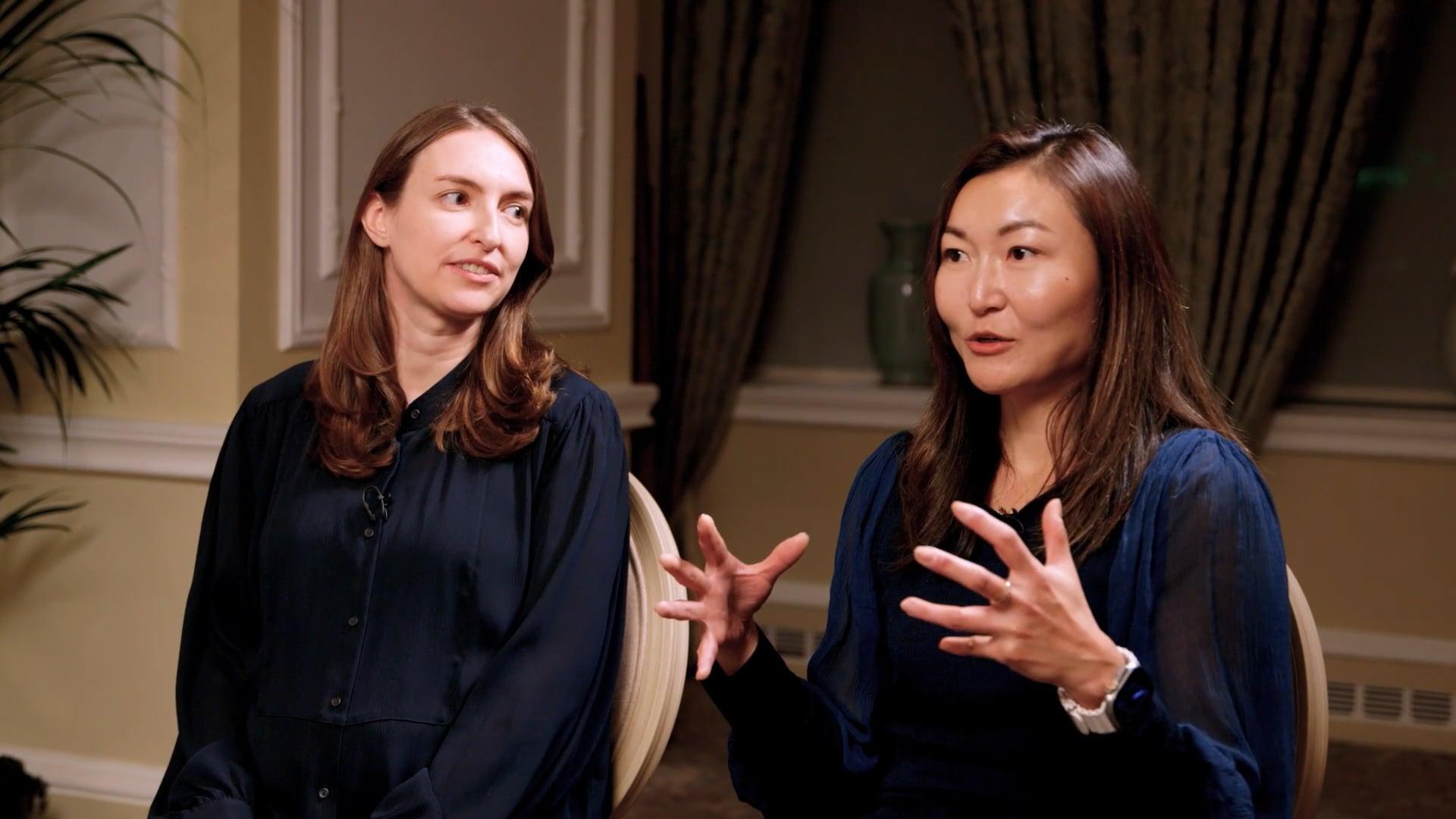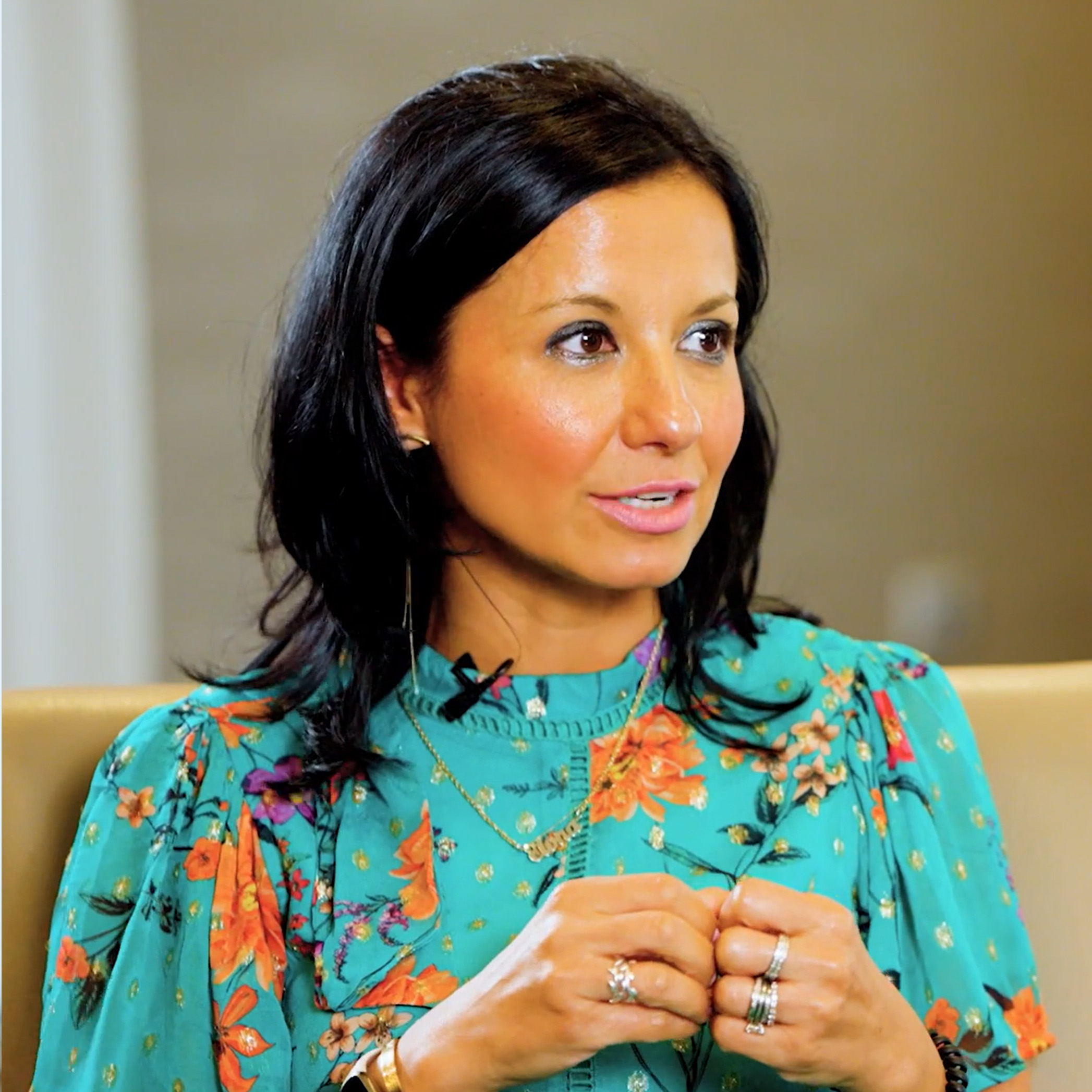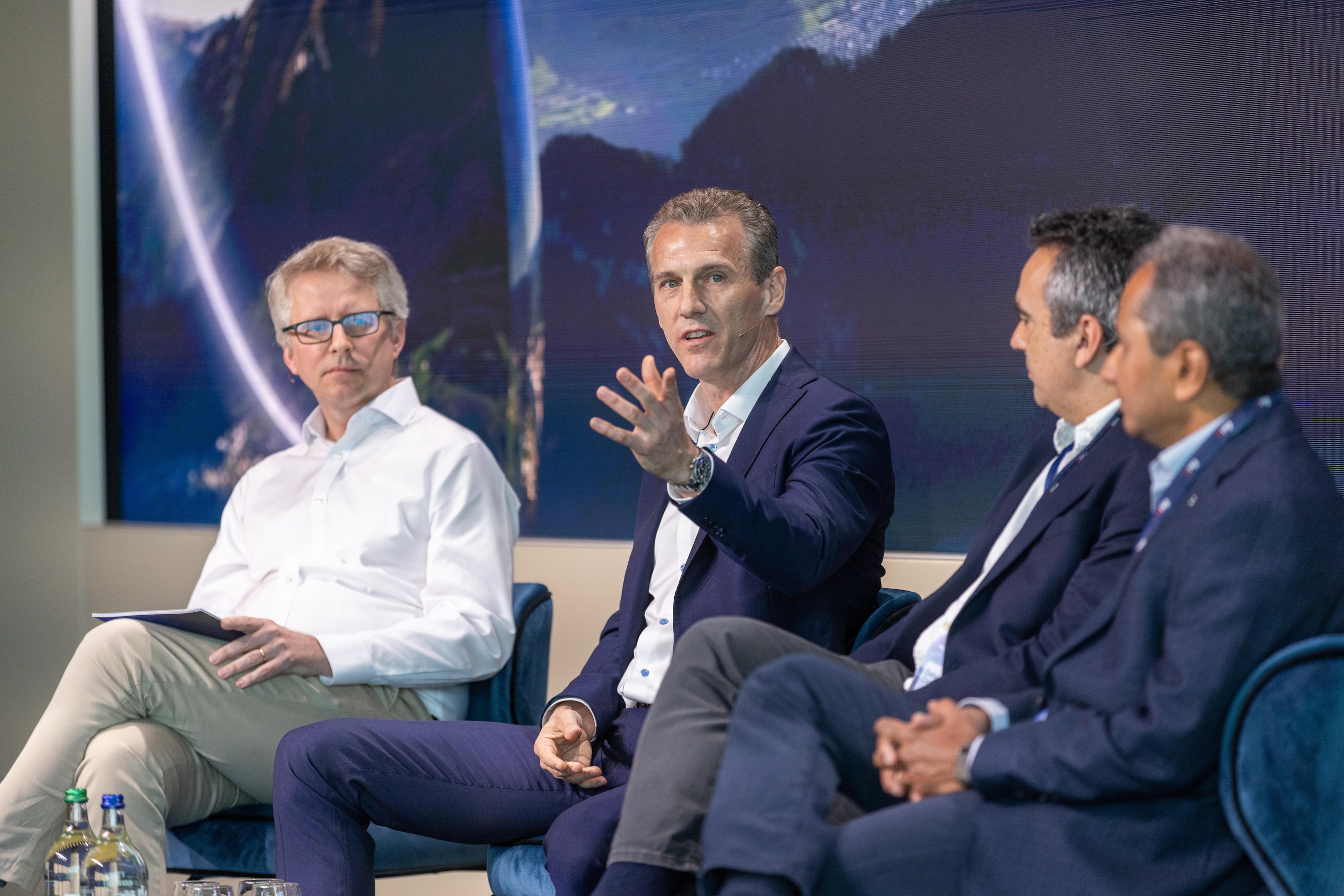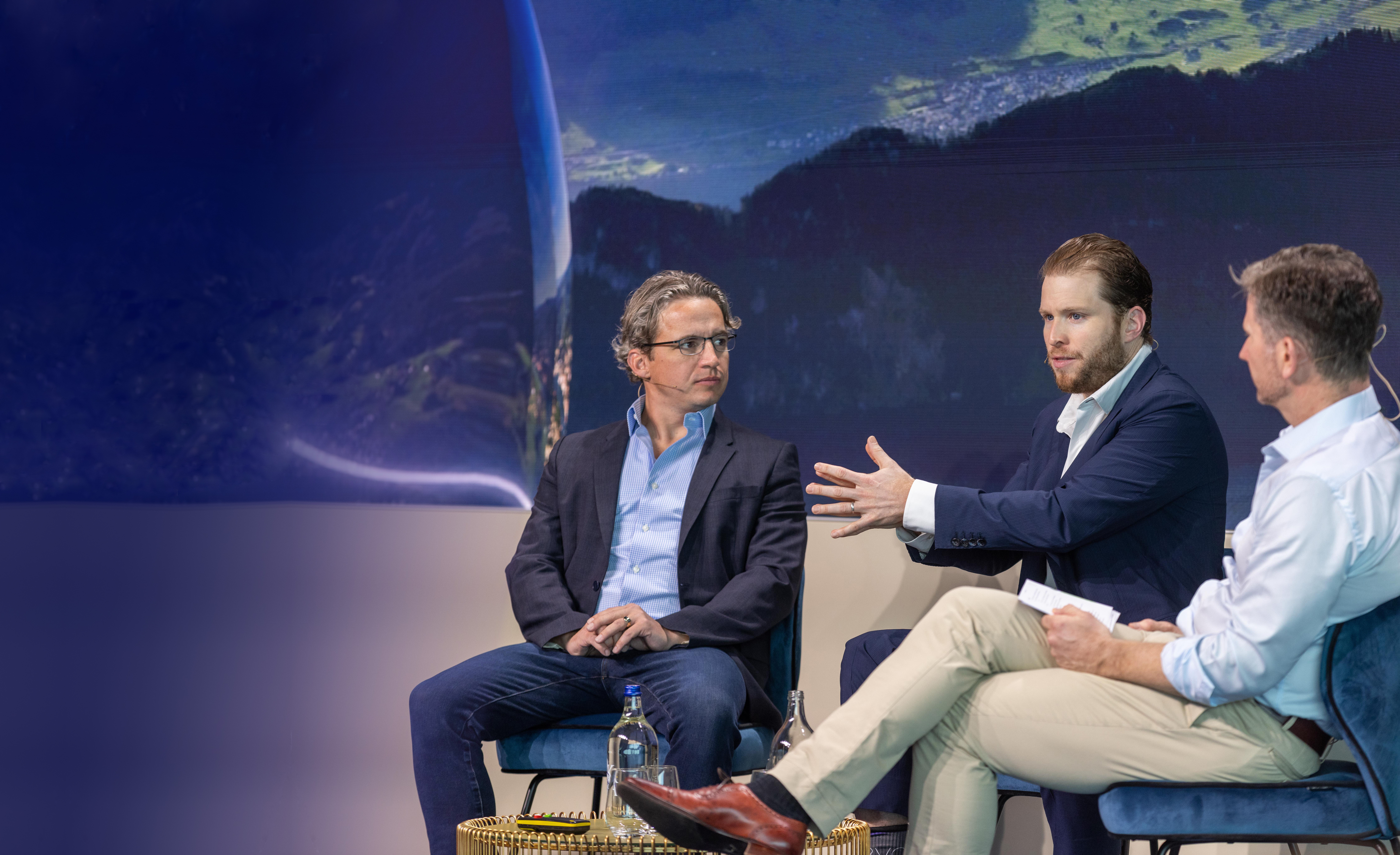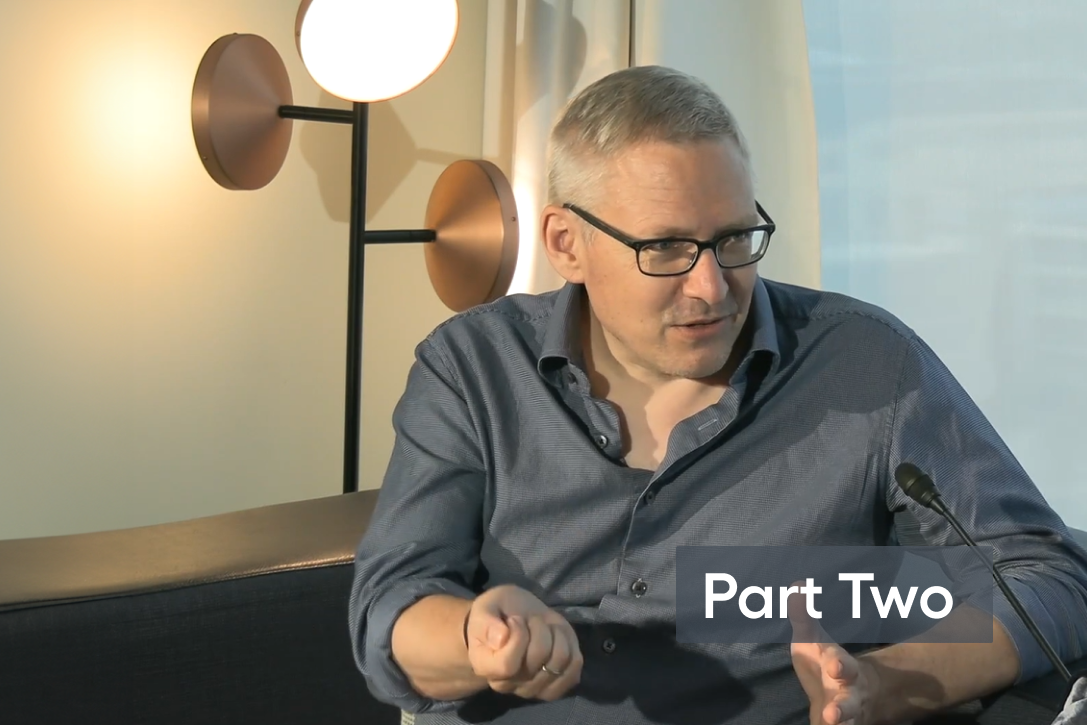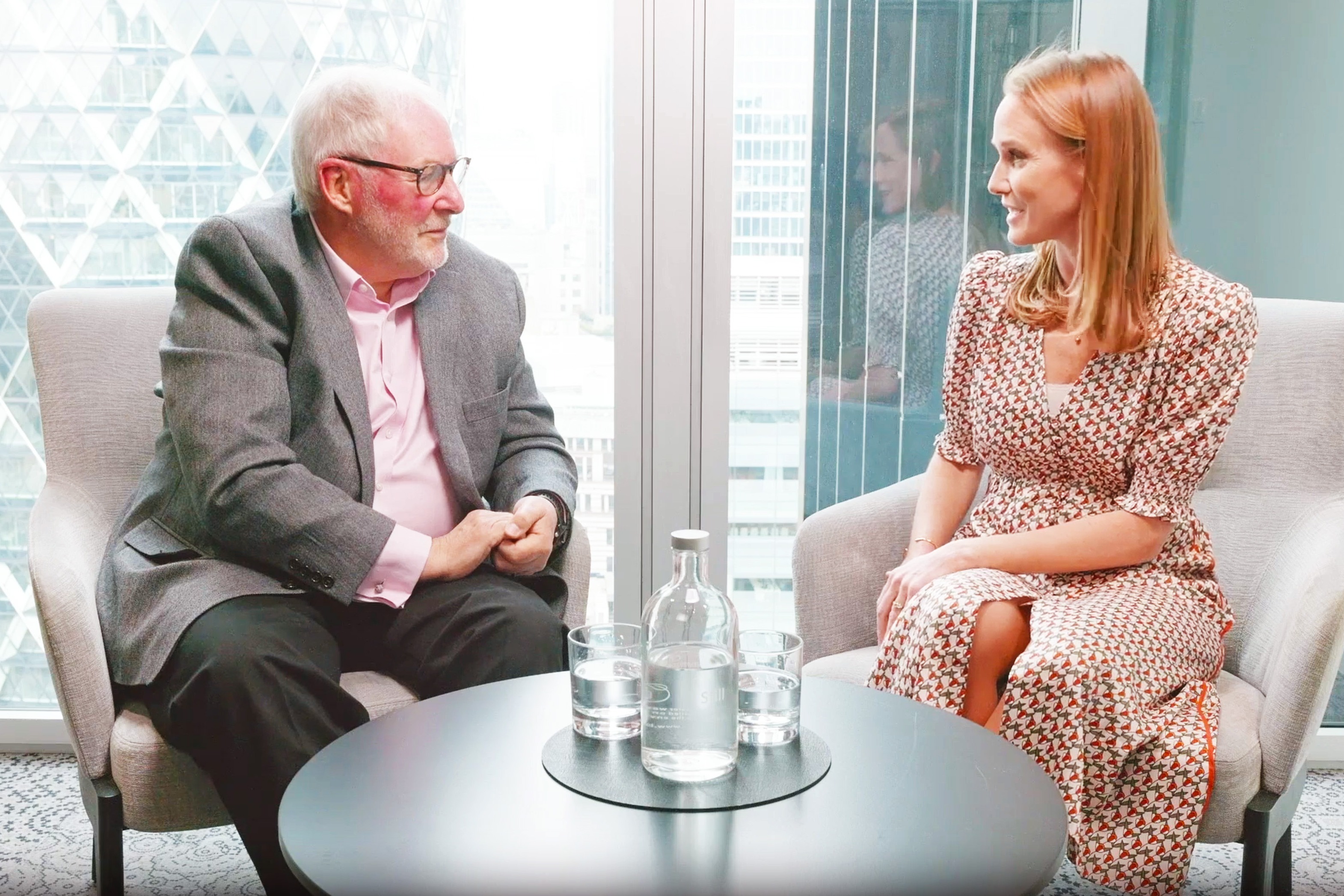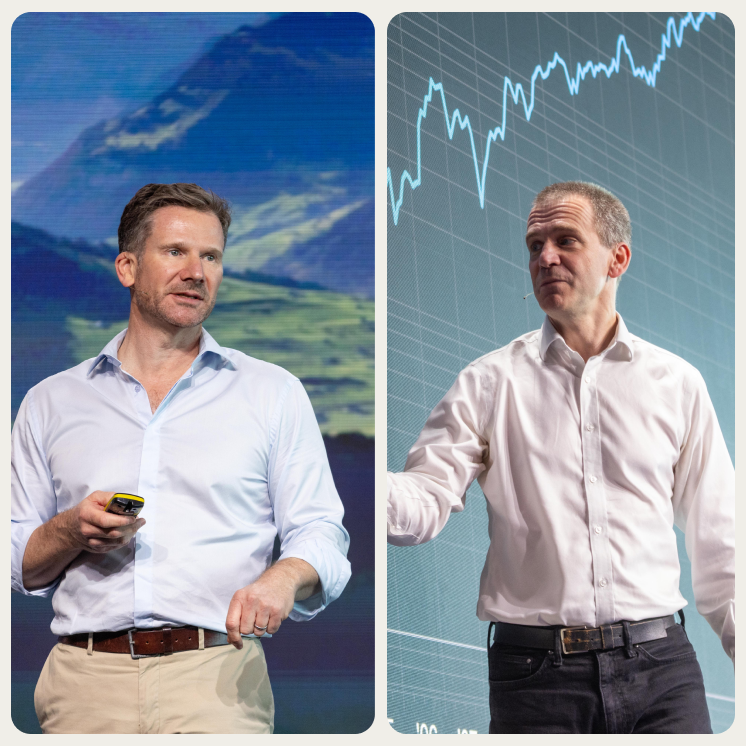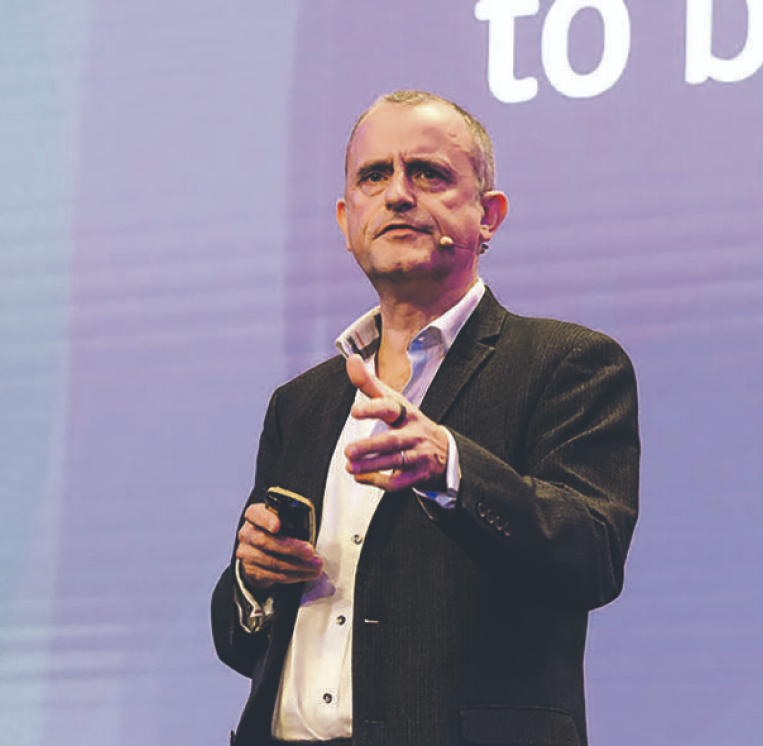Orbit Podcast
Orbit 35
What drives business quality in an era of AI and digital platforms?: Jonathan Knee of Evercore
Time for a conversation with one of the greats. As Professor of Finance and Economics at Columbia, former senior banker at both Morgan Stanley and Goldman Sachs, and currently Senior Advisor at Evercore Partners, Jonathan Knee’s thinking is held in high regard across the business world.
His recent book, ‘The Platform Delusion’, dismantles the long-held belief that a platform business which provides connections rather than creating products is inherently valuable.
So how should we assess business quality in this new era of AI & platforms? Mr Knee outlines the fundamental drivers which haven’t changed in the face of new technology and applies them to assessments of Uber vs Airbnb, Etsy vs Amazon and, of course, how does this all relate to vertical software where we at Hg spend our time.
Listen on:
Episode Transcript
Jonathan Knee
... the idea that because we have entered the internet era or the platform era or the AI era, that now the laws of strategy are, oh, those are old, we have a whole different series of heuristics that are relevant, that notion is what I was trying to attack.
Alexander Johnson
Welcome to Orbit, the Hg podcast series where we speak to leaders and innovators from across the software and technology ecosystem to discuss the key trends in building businesses that endure. Today I'm delighted to be joined by Jonathan Knee, professor at Columbia Business School, senior advisor at Evercore, former managing director at both Goldman Sachs and Morgan Stanley, and author of multiple books, most recently The Platform Delusion.
We'd love to talk today a bit about the central thesis of The Platform Delusion. But before we get into that, I'd like to say on a personal level, I'm delighted that you are able to join us, Jonathan. Of course, your lineage at Columbia Business School is deep, and many investors listening in will, I'm sure, relate to the history from Graham and Buffett, Bruce Greenwald, to now yourself with some of the courses that you are taking there.
I'm really delighted that we can hear from you and try and stand on the shoulders of some big giants of the industry.
Jonathan Knee
Thank you. That's incredibly kind. I don't know that the faculty at Columbia necessarily think that I am the particular epitome of that lineage, but I'm more than happy to take it.
Alexander Johnson
Maybe to start with, it'd be wonderful to hear how you feel the central thesis of The Platform Delusion lies.
Jonathan Knee
I guess, at the end of the day, the central thesis is very much a Buffett-like thesis about what makes a business great. And that has not changed, so I would say the central thesis is that, that the laws of economics do not change with changes in industry structure when industry structure changes how the laws of economics apply in a particular context change and requires thoughtful analysis. But the idea that because we have entered the internet era or the platform era or the AI era, that now the laws of strategy are, oh, those are old, we have a whole different series of heuristics that are relevant, that notion is what I was trying to attack.
Alexander Johnson
It came across to me very strongly in the book, in your highlighting of some of the analog, offline examples of great platform businesses, which people tend to overlook. I think one of the examples was the shopping mall example of the marketplace and the natural network. I don't know if maybe you could use that to...
Jonathan Knee
Sure. That's a good example for a few reasons. One, a lot of people think that platforms is like a modern concept. And it is true that Jean Tirole, the Nobel Prize winning, French economist is the person who popularized the term "platform" as a business model to be analyzed separately around 2000. But if you read the article he wrote, around 2000, all of the examples of platform businesses that he uses are quite old.
All a platform is, is a business whose fundamental value proposition comes from making connections rather than making things. A real estate broker is a platform, because he creates value by connecting somebody who's trying to sell their house with somebody who's trying to buy their house. That is not a modern or high-tech concept. However, when a company called Compass, which is basically a real estate broker, tried to go public in 2021 and did successfully, their S-1 uses the word "platform" about 300 times to get a very, very high valuation.
Back to the example of malls, obviously that's a pretty low-tech business, but what is a mall? It's a real estate developer who is going to serve as a platform to connect retailers of various stripe with the local community. And it is a fabulous business, because what a smart real estate developer does is a lot of research about the demographics of the area, both in terms of how much money people have and what they like to buy, as well as what kind of retail options they have. And then they go around and they sign up a bunch of iconic retailers in particular categories, and they sign them up in long-term deals that usually have escalators, and also that usually limit their ability to open up another store anywhere near that place.
The way that they convinced them to sign up on such terms is they say, "Look, this is happening. I've got all these other people who are signing up, and so you better sign up." You do that on one hand. And once you've done that, on the other hand, anybody who lives in the area has to pay whatever you charge for parking because the alternative is to drive 50 miles, which is the closest place you're allowed to open another Neiman Marcus.
But on the internet, a person who runs a platform connecting individuals with retailers is not going to be able to convince the consumers not to click on anybody else's and they're not going to be able to convince the retailers to only sell on your marketplace. And at the end of the day, your profitability is a function of how much of the value of that ecosystem you as the person managing the platform, get to keep for yourself. And on the digital context, it's going to be a lot less.
Alexander Johnson
I think there's big elements of your challenge here, which I believe is saying, things haven't really changed in the online era from the perspective of how to think about value in business, and we should definitely dive into a few of the fundamental tenants of value in businesses. But I think the other thing that you're saying is that in this digital era, friction costs are so low and switching costs are so low that it can in fact be less profitable to be a platform in the online world compared to the offline world. Which, for me, highlights the central idea of the book which, I believe, is to say, we need to just challenge this idea that just because it's digital and technology enabled and software enabled doesn't necessarily mean it's a better business.
Jonathan Knee
That's right. And it also doesn't mean it's necessarily a worse business. What it does mean is, using words like platform or other trigger words to make you convinced that it's got to be a great business, whether that is AI or network effects or whatever, that isn't the fundamental underlying driver of whether or not it's a good business. Those fundamental drivers remain the same. And in the context of any one of those magic words, you have a long list of good businesses and a long list of bad businesses.
Alexander Johnson
How about we go into the core drivers of what is a good business or not such a good business? And then maybe we can talk about a couple of examples. What would you say the couple of real drivers of good businesses are?
Jonathan Knee
At the end of the day, what I would say is, the number one attribute of every great business is scale. And scale is not what most people think. It's not absolute size. There are plenty of really, really big, really, really stinky businesses. It's relative size within whatever the domain that you are in, so it can be a tiny, tiny niche, but you are three times as big as your next biggest competitor. And because you are so much larger, you're able to reap disproportionate value on a relative basis out of the ecosystem.
And that value is reaped usually from one of two directions. Historically, in the analog world, overwhelmingly it was reaped because it was a business that had a lot of fixed costs, and those fixed costs everybody has to incur. And if you're three times bigger than the next guy, your average cost is going to be way lower, because you're spreading it...
Alexander Johnson
Small revenue, bigger margin.
Jonathan Knee
Exactly. That is number one. In a networked, digital world, not on the cost side but on the revenue side, if you are bigger than others in a business that has what is called network effects. Which is just another way of saying a business where every additional customer actually makes the business better, i.e. the product better, not the economics, so a telephone system, the more people on the system, the better it is because the more people you can call.
Telephone system's quite an old idea, a social network is a new idea, but it's the exact same phenomenon. Or a marketplace, where more buyers attracts more sellers, more sellers attracts more buyers, and there is a virtuous circle. Again though, each of those are manifestations or the sources of the potential benefit of the fundamental advantage, which is scale. So, number one is scale. But scale by itself is very vulnerable, because as soon as somebody sees a business operating with scale...
Alexander Johnson
And big margins.
Jonathan Knee
... and big margins, you're going to attract capital to try to split that with them. There needs to be some other sources of advantage to reinforce that scale to make the overall franchise a more tenacious one.
And the two other sources are, either something on the customer side, on the revenue side, that allows you to keep your customers captive, whether that's habit or customer captivity or search costs or whatever. If you have that with scale, that's pretty powerful. The other thing on the cost side is, if you have some kind of proprietary technology. And I mean that in the broadest sense possible, not necessarily a patent. Sometimes what's proprietary is simply the fact that you've done it more and you've moved down the learning curve faster, and so you can produce everything more efficiently and cheaper than others.
Scale plus either, or better both, customer captivity or proprietary technology, those are the things that some combination of that create a durable franchise.
Alexander Johnson
That's fantastic. I remember in your book you segment some of the advantages into supply side and demand side. You talk a little bit about industry structure and how that can lead to other forms of business quality. Is that something that's worth adding here?
Jonathan Knee
Yeah, that's certainly right. The demand side or the revenue side is the customer captivity side. What I would also say to the point that you were making, in a digital environment, customer captivity, it matters, but the way in which it's going to manifest itself is probably going to be a little different. That is, in a digital environment, typically switching is a lot easier, for the reasons we talked about before. You just click on another point. But on the other hand, in a digital environment, you're going to likely have a lot more information about your customer, so you can personalize the product in a way that would make switching costs higher because you've personalized it in a way that if they went somewhere else it would take that other providers.
Again, depending on the use case, almost in every case there's a plus, there's good news and there's bad news. And the question of whether there's more good news or more bad news on a relative basis really depends on the use case. Which goes back to the earlier point, which is using some trigger word and saying that's the answer, as a way to avoid doing the hard work of actually doing the calculation as to whether in this instance, advantage is stronger or weaker, is not a good idea.
Alexander Johnson
Yeah, there's no substitute. And I guess, the concepts of whether you have a very large number of customers or a very small number of very big customers, that may influence how durable that business might be in the long term. If you maybe sell all of your revenue to only three customers, you imagine that situation, it's probably going to be difficult for you to maintain your position. You're probably going to be told to do things by those three customers and you can't afford to lose any of them.
Jonathan Knee
Absolutely. That actually goes to this concept that is probably as ubiquitous as "platform" in the current era, which is network effects. As we talked about already, network effects is simply the way in which the advantage of scale manifests itself, the benefits of scale in networked business on the demand side or on the revenue side. But just like in the case of fixed cost scale, the strength of it depends on how much of the cost structure is fixed. If none of the cost structure is fixed, there's no particular benefit. In addition, if you're not the biggest guy, the fact that there's a lot of fixed cost is not an advantage, it's a disadvantage.
Just saying network effects by itself doesn't tell you there's good news. You need to know first that you're the biggest, because if you're not, you're at a competitive disadvantage, not at a competitive advantage. But then, to the point you were just making, you also need to know a lot about the industry structure in which that network operates, to know how strong and how attractive those network effects are.
In general, if it is a many-to-many market and there are lots of different nodes, your ability as a platform operator within a network to keep the value... Because you're connecting all of these many, many different nodes, none of which are all that big and none of which, if they decided to collude with two or three others, could be that important... in that environment, in a many-to-many environment, you might be able to do quite well. But to your point, if it's a multi-sided platform, and one of those sides that's critical only has a handful of people... And the example you gave, those people, if they see you're taking a huge amount of margin, they're going to say, hey, you need to give me some of that, or some more of that, or else I'm going to start my own platform.
Alexander Johnson
Bypass that platform, disintermediate it in the commonly used words.
Jonathan Knee
And in fact, even in many-to-many markets, sometimes people slip in on one side or the other and aggregate a large number of the players on one of the sides or the other, and try to introduce themselves and say, you thought it was many-to-many, but actually it's just me. And frankly, that's what Google does in the context of many of these consumer markets. Almost every business, the pathway to get to those many consumers is through their search on Google. And Google is sitting there and, trust me, they're going to take their vig before it gets to you.
Alexander Johnson
I think it's a good segue into providing a few example cases. There was a fantastic case study in the book on comparing the business quality of Uber versus Airbnb. I think it highlights a number of the points that we've been discussing. Maybe it's a question to contemplate for people listening at the moment: Which business do you think is better, Uber or Airbnb? Jonathan, maybe you can shine a light on that question.
Jonathan Knee
Sure. The reason why I think it's interesting is, again, they're both very similar business models. If somebody said, hey, it's a network effect business, they're going to be the same. Because in one case, you're taking your apartment and saying, okay, I'm going to make it available at a peer-to-peer marketplace that's managed by Airbnb. And in the case of Uber it's, I've got a car and I've got myself driving it. Now in New York, it's actually even more similar because the regulators in New York are requiring the Airbnb hosts to actually literally host and stay in the apartment. But that's not generally the model.
But they're very, very similar businesses, so you would think, why wouldn't the economics be the same? And the answer is a whole bunch of reasons. You can just think about some aspects of competitive advantage that matter. One of them is this issue of fixed cost. Airbnb, unlike Uber, really is a global business. What do I mean by that? 'cause Uber appears to be global, it's in every market.
Alexander Johnson
Right, right.
Jonathan Knee
But it's really a multi-local market. Uber can be in Sao Paulo and there'll be two dozen competitors in Sao Paulo, and those guys, they don't need to operate in Omaha to operate in San Paulo. It's all about density in San Paulo of drivers and people who want to get into a car.
Alexander Johnson
My value of using Uber doesn't increase because I could theoretically use Uber in another country.
Jonathan Knee
Right. There's a tiny percentage of the users who are people like you who are jet-setters around the world, and it's marginally more convenient for you to have one app, but that's not 98% of usage, which is all local. And you say, why isn't Airbnb just like that? Think about you putting your apartment up on Airbnb in London. You say, "I just care about London." No, you don't. You are trying to attract people who might rent your apartment from all over the world. Unless you find a business that actually has marketing muscle and a brand around the world, you're not going to attract any buyers.
Similarly, on a totally different part of the value chain, think about how important it is for the network to have additional users, that network effect. In some contexts, network effect, the more you have, the better it is, and it just keeps getting better forever. That is the case with Airbnb, because if I'm looking for an apartment in the 6th or 7th [inaudible 00:19:52] in Paris, every additional opportunity and unit which has some different quality, whether or not it has air conditioning at this time of the year, whether it has a view of...
Alexander Johnson
Yeah, your wife might need a view of the Eiffel Tower.
Jonathan Knee
Exactly. Every single, additional one makes it better and better and better, so there really is a scale advantage, and that network effect just keeps going on and on. And that's because it's a highly-nuanced product.
Alexander Johnson
It's not a commoditized market.
Jonathan Knee
Correct.
Alexander Johnson
Staying in one place is not really the same as staying in another.
Jonathan Knee
Exactly.
Alexander Johnson
And we care about it a lot because we will be spending a lot of our time there.
Jonathan Knee
Exactly. The downside to getting it wrong, you only have one vacation a year. On the other hand, you're taking a car often, and maybe you care whether it's Guido or Ahmed driving, and whether the car smells, or what have you. But really, at the end of the day, you just want to know how long it's going to take to show up and what it's going to cost. And as you add new drivers onto the network, that obviously allows you to get the car quicker.
But once you get to three or four minutes, adding more people onto the network not only doesn't help, my office is on the 37th floor, it takes me four minutes to get there. If the car is there in 30 seconds and is gone by the time I get downstairs, that's not a good thing. The value of the network actually tops out. And that is a fundamental impact on the economics, of where the breakeven economics are.
Alexander Johnson
I think they're two very different businesses, and they really perfectly illustrate the way that we have to go beyond just the idea of network effects and the idea of a huge, global market that both players can theoretically serve. One has to really think about what is the customer needing, what does the customer want?
I think in the book you also describe how there's an element of the customer learning and understanding and wanting to know a lot of information about the apartment. But again, on the driver's side, you don't care after a certain point. And it's very, very difficult for anyone to replicate the scale of all of the individuals who've put their apartments on Airbnb, whereas, I don't know about you but, most markets have got multiple versions of Uber, local competitors or otherwise, and the drivers flip between the apps.
Jonathan Knee
Absolutely.
Alexander Johnson
There's no loyalty.
Jonathan Knee
Right. Neither amongst drivers or amongst users. We haven't talked really about artificial intelligence and software, but again, all of these things tend to reinforce each other. Think about if you have supersonic artificial intelligence, what are you going to learn if you apply that to the data in Uber, that's valuable. I mean, even before there was an Uber, taxis knew where to be at around five o'clock, they know where you're going back and forth. Is there some incremental information that can make them a little smarter about where to set up, how to sell some advertising? Maybe.
But in the context of Airbnb, the opportunities to monetize based on knowing where the person's staying, where other people who have stayed there before have eaten, what they've bought, what they've done, all of that, think about how software in that context... And really, with real proprietary data, because software without proprietary data is only as good until somebody else gives a bunch of programmers a couple of six packs and a weekend off. I mean, if you've got proprietary data with software and you can think of use cases that really either improve the product, give you incremental ways to monetize the product, that's a real advantage.
Alexander Johnson
Yeah, I think it's a really nice way of using the framework. And I guess by virtue of saying that business quality of Airbnb is higher than Uber, I guess it's not to say that Uber is going to disappear and go away. I think it points to the long-term margin potential and probably should point to the relative valuation between the two. Which I think it's fundamental, obviously, to all of the investment decisions that we make at Hg. We always have to think, what is the underlying business quality and anything we can investment in? We want to hold it for the long term, we want to grow it, we want to make sure that we can invest in the companies that are going to do the best.
It's such a fundamental framework. And it's wonderful to think about the big platforms and think about what that means. But it's just as relevant in the niches that we at Hg invest in, whether that's in tax software or in ERP, where you have niches within the ERP market and you want to find the business that's got a lot of domain knowledge, a lot of IP in the product. It's all an application of your framework.
I'm curious, maybe bringing it a bit closer to home with Hg, how do you sort of see the interaction between some of these very large platforms and some of the more niche, vertical specialists?
Jonathan Knee
I guess what I would say is that the emergence of these mega platforms, whether it's FAANG, or I guess Microsoft's in there, and a bunch of others, I think what it really highlights is the continuing, essential nature of specialization to create value. There are some people who have fallen prey to The Platform Delusion, even in academia. There's a book out called Competing in the Age of AI, which argues that because of the combination of these platforms with network effects reinforced by AI, that specialization is going to become irrelevant. Everything is going to be one big, massive horizontal, and specialization is yesterday's news.
But think about that. Think about the value of specialization. First of all, just empirically, if that were true, instead of there being 100 niche-focused SaaS public companies with over a trillion in collective valuation, all of those guys would've just merged together, and it would be one big SaaS blob.
Alexander Johnson
Right.
Jonathan Knee
That didn't happen, and that hasn't happened, and there's no evidence to suggest that it's going to be happening. And why is that? Let's break it down, break down each of the sources of advantage that we talked about. Each one of those is enhanced by specialization. What do I mean by that?
Scale. Again, I said scale is not size, it's relative scale. Your ability to achieve relative scale in a relatively defined niche is way easier than achieving relative scale in a massive global market. In massive global markets, you can probably have a breakeven market share at 2%. You're not going to have relative scale easily. By focusing on a niche and the ability to achieve relatively quickly, relative scale is easier.
Customer captivity is all about understanding the peculiar needs of a psychographic demographic group. And responding to those needs and knowing more about them than anybody else. Time and again, we have seen in SaaS, companies that were founded by a coder who knew an industry. BlackLine, the accounting closing process at the end of each month within divisions. That is so minute.
Alexander Johnson
Try using Salesforce to do that.
Jonathan Knee
Right. Exactly. Once you show the respect that knowing what your customer's life is really like and creating a product that responds to it, and once they buy into it, the customer captivity is extra strong as opposed to in a general interest product. I started in the media business. This was true in the magazine business 30 years ago. General interest magazines have much lower CPMs. You'd get much lower ad rates because the value of any reader is not that much. But if you've got a specialist magazine in some area, the people who are selling things exactly to that area will pay CPMs 10 times higher for the access to those eyeballs, so the customer captivity is much, much higher.
And then, on what we call the supply side or the cost side or the proprietary technology side, the ability to get data that is proprietary and relevant as opposed to just huge masses of data, and knowing what questions to ask software that leverage that data, and the ability to move down the learning curve quickly within a vertical expertise, is much, much greater. To me, the real lesson here is, yes, the mega platforms are an important phenomenon, but it doesn't signal the end of specialization. It actually highlights the enduring and essential value of specialization in order to combat them effectively.
And you can. I mean, look at Amazon. Whenever Amazon announces it's going to enter some vertical that they hadn't been selling before, whatever company is in that, their stock falls right away. But within a year, their stock has come back, because either Amazon realized they couldn't do it or they didn't really have an impact. I mean, look at something like Etsy. The reality is, Amazon will never be able to be as responsive to that community as Etsy is.
Alexander Johnson
I think it's a brilliant illustration. Of course, in the era of AI, there's a lot of questions around how is that going to impact, I guess, the Hg portfolio as well. And I think it goes back to that idea of how much domain-specific knowledge, content, data is there within the business that you are analysing? How much of that content exists, and how easy is it to get that? And often it's very difficult.
One could have very strong AI capabilities, but if you imagine a start-up trying to disrupt an incumbent, the incumbent should be able to develop some AI capabilities. And it's not obvious that the disruptor would always disrupt. It's a core part of how we think about all investment decisions now. We have to always consider these things. But I think it goes exactly to your thesis, one has to ignore all of the hype a little bit and think back to first principles, what really matters here.
Jonathan Knee
Right. The fundamental question is: Is there a barrier to entry? Because if there isn't a barrier to entry, people will enter, that is, to the extent you're making a super normal profit and there's no barrier to entry, people will keep entering until that super normal profit becomes a normal profit. Barrier to entry and competitive advantage are just different words for the same thing. And they are the only way that you can predictably get superior returns for an extended period of time.
Alexander Johnson
I think that's a very nice way to end this podcast today. Jonathan, it's been such a pleasure having you here. I feel like we've dug into many topics, so I'm delighted for that. Thank you very much.
Jonathan Knee
Thank you for having me. It's been great.
Orbit episodes
Orbit Podcast
A certain level of chaos is healthy: Franz Faerber on fighting bureaucracy and the importance of deep domain knowledge in AI
Episode detailsOrbit Podcast
The corporate immune system: Google Cloud's Daniël Rood on building Europe's first AI team
Episode detailsOrbit Podcast
Skin in the game: Professor Neil Lawrence on vulnerability, accountability and why the next generation will thrive.
Episode detailsOrbit Podcast
The 3 speed problem: Oji Udezue on CPO leadership in the age of unlimited engineering
Episode detailsOrbit Podcast
Fevered determination: Building Zalos from zero to enterprise in 5 weeks
Episode detailsOrbit Podcast
Trust, velocity, and building the Answer Engine: Dmitry Shevelenko of Perplexity speaks to Farouk Hussein
Episode detailsOrbit Podcast
The long road to the last mile: Nic Humphries and Matthew Brockman reflect on 25 years of Hg
Episode detailsOrbit Podcast
AI, Control Points, and the Next Wave of Vertical SaaS with Tidemark Capital founder, Dave Yuan
Episode detailsOrbit Podcast
A glimpse of the next generation: Zoe Zhao and Annalise Dragic of Azlin Software
Episode detailsOrbit Podcast
The business case for AI: Brent Hayward of Salesforce, David Carmona of Microsoft & Nagraj Kashyap of Touring Capital
Episode detailsOrbit Podcast










